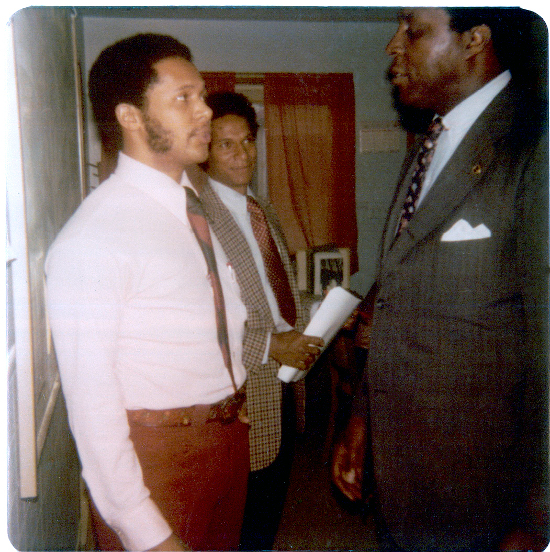Detroit Mercy President remembers his friend, Vernon Jordan
Vernon E Jordan Jr., a major African American leader, who passed away at the age of 85 earlier this month, deserves more than just a temporary remembrance. He was and should continue to be recognized for his advocacy of voting and civil rights, historically Black colleges and universities and the need for more diversity in corporations’ boardrooms and executive suites.
Born in Atlanta to a mother who cooked for an upper-class family and later established a successful catering business and a mail carrier father, Jordan rose rapidly in his 30s to lead the United Negro College Fund in 1969 and the National Urban League from 1971 to 1981 during pivotal years of racial and societal change in this country.
In the second half of his life, he used his carefully honed skills of eloquence and diplomacy to advise American presidents, leaders of businesses and organizations, and others like me who benefited from his friendship and wise counsel. I was fortunate to experience first-hand the common touch of a man whose name will be placed in the history books alongside contemporary civil rights and political leaders such as John Lewis, C.T. Vivian, Elijah Cummings and others who have departed recently.
 We met in the summer of 1975 at the National Urban League’s annual conference, held in his hometown of Atlanta. My sister Alfreda was a member of the national and St. Paul (Minn.) Urban League boards and I, a doctoral student at the University of Minnesota, had unexpectedly become the principal of the St. Paul Urban League Street Academy the previous January.
We met in the summer of 1975 at the National Urban League’s annual conference, held in his hometown of Atlanta. My sister Alfreda was a member of the national and St. Paul (Minn.) Urban League boards and I, a doctoral student at the University of Minnesota, had unexpectedly become the principal of the St. Paul Urban League Street Academy the previous January.
Vernon showed an immediate interest in my dual responsibilities that I believe was probably reinforced by our Howard University bachelor’s and juris doctorate degrees, respectively. I was not only inspired by the speeches of this 39-year-old president of a national interracial organization, but also impressed by the A-list of speakers and enormous financial investment of corporations and foundations that supported the Urban League’s extensive civic, job placement and training, housing, education and other programs.
The St. Paul Urban League Street Academy, for example, served high school students who were truant, suspended, expelled or had dropped out. Approximately 15 Street Academies existed in different cities, including Detroit and five in each borough of New York City; and many young men and women of all races obtained their high school diploma or equivalency credential because of their existence. Vernon showed his support of ours with a visit in 1976 and he always enjoyed seeing his younger self in this memorable photo.
We maintained contact as my academic career progressed, and we would reunite in 1996 at Howard University when he was a member of the board of trustees and I became the first provost and chief academic officer. He always attended board meetings and major alumni events, and especially enjoyed preaching his annual sermon at Andrew Rankin Memorial Chapel. Our relationship grew stronger and he graciously served as a reference for my presidential search candidacies. His most significant contributions to Howard University will be his persistent advocacy for the university’s annual federal appropriation with members of Congress and presidential administrations as well as the corporate resources he attracted during his twenty-one years as a trustee.
Many will agree that Vernon E. Jordan Jr. was the most well-connected person in America, and he should be celebrated for years to come because of the numerous opportunities and doors he opened for others.
— By Antoine M. Garibaldi, President of University of Detroit Mercy. This article appeared in the March 12, 2021 edition of The Detroit Free Press.
